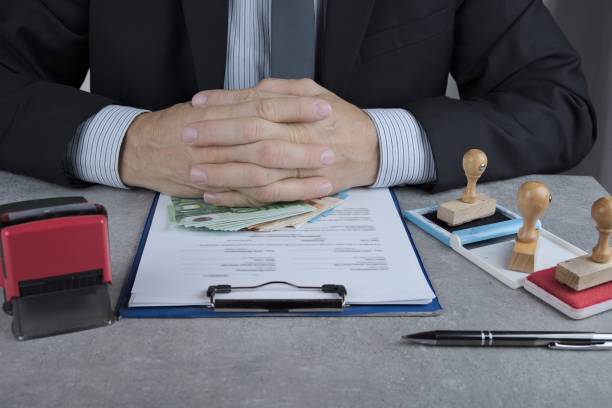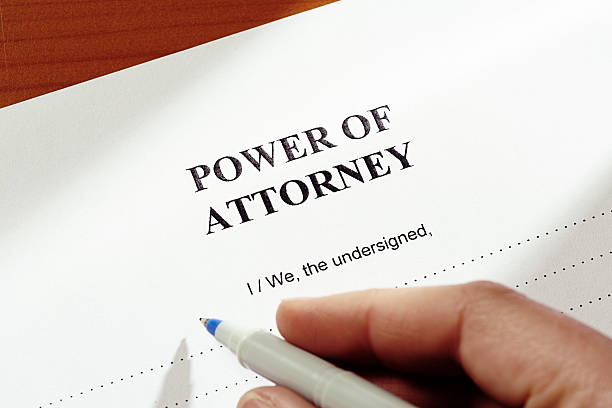Breaking Down Power of Attorney Fees: What You Need to Know

Introduction
Are you familiar with the concept of power of attorney and the associated fees? If not, you’ve come to the right place! In this comprehensive guide, we will delve into the intricate world of power of attorney fees and help you understand the various factors that influence them. Whether you’re considering appointing a power of attorney or you’re curious about the costs involved, this article will provide you with the knowledge you need to make informed decisions. So, let’s dive in and unravel the mysteries behind the power of attorney fees!
Understanding Power of Attorney Fees
Before we delve into the details, let’s first establish a clear understanding of what power of attorney entails. In simple terms, power of attorney (POA) is a legal arrangement that grants an individual, known as the “principal,” the authority to appoint someone, referred to as the “agent” or “attorney-in-fact,” to make decisions on their behalf. This authority can be general, granting broad decision-making powers, or limited to specific matters.
Now that we have a basic understanding of power of attorney, let’s explore the various aspects that influence the associated fees.
Factors Influencing Power of Attorney Fees
1. Complexity and Scope of Powers
The complexity and scope of the powers granted to the attorney-in-fact significantly impact the fees associated with a power of attorney. A general power of attorney, which grants broad decision-making authority, typically involves more responsibilities and, consequently, higher fees compared to a limited power of attorney with specific mandates.
2. Attorney’s Experience and Expertise
The experience and expertise of the attorney drafting the power of attorney document also play a crucial role in determining the fees. Seasoned attorneys who specialise in estate planning and power of attorney matters often charge higher fees due to their extensive knowledge and track record in handling such cases.
3. Geographical Location
Power of attorney fees can vary depending on the geographical location. Attorneys practising in metropolitan areas or regions with a higher cost of living generally charge more than those in rural areas. It’s essential to consider the local market rates when budgeting for power of attorney fees.
4. Time and Effort Required
The time and effort invested by the attorney in drafting and reviewing the power of attorney document can impact the overall fees. Complex cases that require extensive research, consultations, and revisions will naturally incur higher costs compared to simpler cases.
5. Additional Services
In some instances, additional services may be required along with the power of attorney, such as creating a living will or establishing a trust. These supplementary services can add to the overall fees, as they involve additional legal work and documentation.
6. Law Firm’s Reputation
The reputation and prestige of the law firm you choose can also influence the fees associated with a power of attorney. Renowned firms with a proven track record and a prestigious clientele often command higher fees due to their reputation and perceived value.
Now that we have explored the key factors influencing power of attorney fees, let’s address some frequently asked questions to provide further clarity.
FAQs about Power of Attorney Fees
1. How much do power of attorney fees typically cost?
Power of attorney fees can vary significantly based on the factors we discussed earlier. On average, you can expect to pay anywhere from $100 to $1,000 or more for power of attorney services. It’s crucial to consult with multiple attorneys and obtain fee quotes to ensure you receive a fair price.
2. Are power of attorney fees a one-time payment?
Yes, power of attorney fees are typically a one-time payment. However, it’s important to clarify with your attorney if any additional fees or charges may apply for ongoing services or updates to the power of attorney document in the future.
3. Can power of attorney fees be negotiated?
Yes, in many cases, power of attorney fees can be negotiated. However, it’s important to remember that excessively low fees may raise concerns about the attorney’s expertise and quality of service. Striking a balance between affordability and experience is key when negotiating power of attorney fees.
4. Are there any additional costs associated with power of attorney?
In addition to the attorney’s fees, there may be additional costs such as notary fees, filing fees, or fees for obtaining certified copies of the power of attorney document. These costs can vary depending on your jurisdiction and specific requirements.
5. Can I create a power of attorney document without an attorney to save money?
While it is possible to create a power of attorney document without an attorney, it is generally recommended to seek professional legal assistance. A poorly drafted or incomplete document can lead to complications and legal issues in the future. Investing in the expertise of an attorney can provide peace of mind and ensure the validity of your power of attorney.
6. Are power of attorney fees tax-deductible?
Power of attorney fees are generally not tax-deductible unless they are directly related to business or investment activities. It’s advisable to consult with a tax professional or accountant for personalised advice based on your specific circumstances.
Now that we have addressed some common questions regarding power of attorney fees, let’s conclude our guide with a brief summary.
Conclusion

In summary, understanding power of attorney fees is essential for anyone considering appointing a power of attorney or seeking information on the costs involved. Factors such as the complexity and scope of powers, attorney’s experience, geographical location, time and effort required, additional services, and the law firm’s reputation all contribute to the overall fees. By being aware of these factors and asking the right questions, you can make informed decisions and ensure that the fees you pay are reasonable and fair. Remember, consulting with an experienced attorney is crucial to ensure the validity and effectiveness of your power of attorney.
